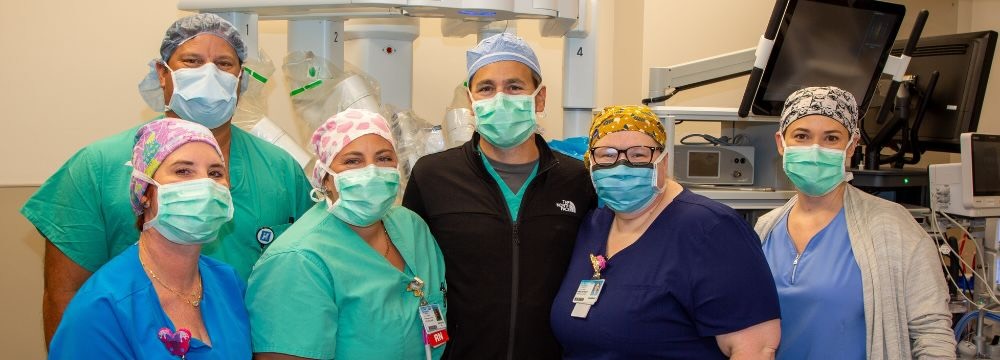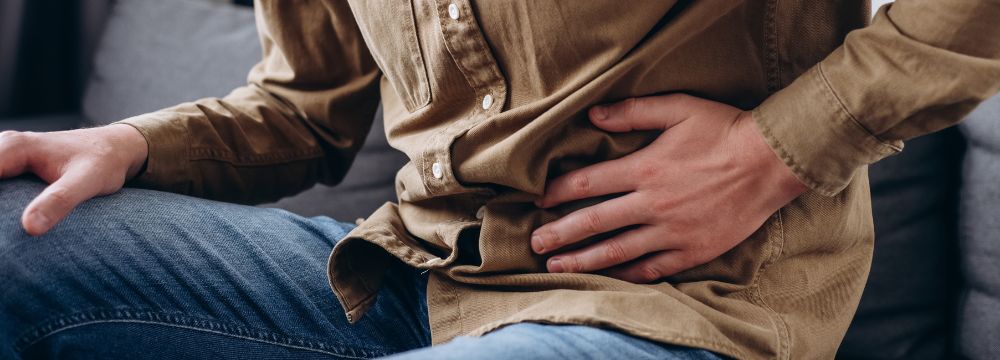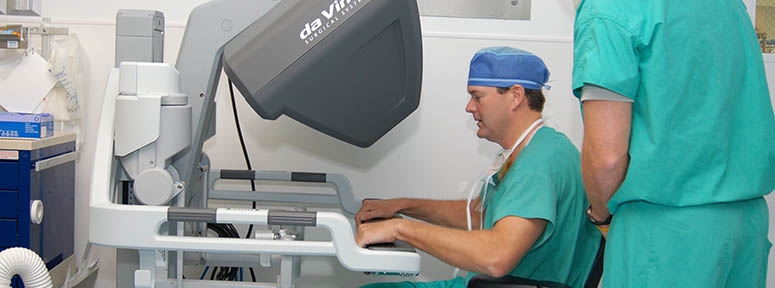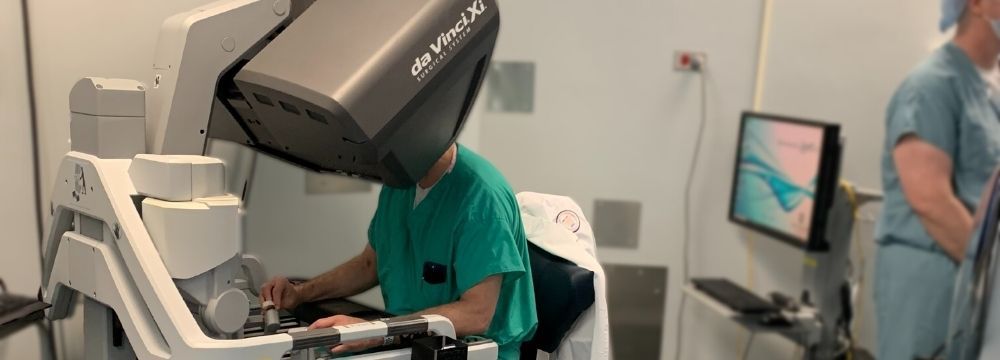
One of the most common reasons patients delay their hernia procedure is out of fear of pain. Well, we have great news for you! With advances in minimally invasive and robotic surgery, we have dramatically reduced the pain patients experience during their recovery. Today, we can perform virtually any hernia procedure using just a few tiny incisions in the abdomen versus the traditional large incision that was the norm a few decades ago. Even the mesh technology used to cover the hernia defect has improved, and the risk of complications associated with mesh is dramatically lower. However, any operation will come with some discomfort, so let’s talk about the pain associated with hernias and hernia repair.
Hernia Pain Can Lead To Longer-Term Pain as Well
Everyone will have a different experience with a hernia. For some, hernias may be relatively small but very painful. For others, the hernia may be large but not cause much pain. Either way, if you let your hernia worsen to the point where it causes significant pain before the procedure, the likelihood of experiencing chronic pain after the operation increases. Therefore, we always suggest that a hernia be repaired earlier rather than later, especially in young, relatively healthy patients. When it comes to hernia pain, it is essential to remember that significant pain at the hernia site, redness, fever, and other significant symptoms may be a sign of incarceration or strangulation, which is an emergency that must be treated at a hospital immediately. Do not delay in seeking care. Get to the hospital or call 911.
So now that we have discussed the potential for pre-operative hernia pain causing postoperative discomfort, what pain could you experience due to the surgery? All hernia operations require incisions, where most discomfort occurs after the procedure. While we will often prescribe narcotic pain medication, many patients may not need it. An over-the-counter painkiller, as your surgeon suggests, may be sufficient to control the pain. We do not want you pushing through the pain and instead prefer you take the minimum dose of pain medication you need to get by. Toughing it out usually means you are not as mobile or active as you can and should be. We want you up and walking after your hernia procedure to minimize the risk of infection and speed up your recovery.
Inguinal Hernias
Most hernia operations are performed on men for what is known as an inguinal or groin hernia. Because these hernias occur in and around the inguinal canal, which is the pathway for testicular connections, there are some considerations to discuss. For example, you may feel discomfort and enlargement in the scrotum as the fluid from the swelling drops with gravity.
Nerve Considerations
It is also essential to discuss the nerves in and around the surgical area. This is particularly important during inguinal surgery. Our bodies are full of nerve endings. Even with the most advanced techniques, these nerves can be irritated or damaged causing longer-term pain. This has been reduced dramatically by using blunt dissection to reach the hernia defect rather than sharp cutting tools.
Mesh Considerations
No hernia discussion is complete without discussing mesh. Mesh has been controversial in the past for several reasons, legitimate and not, but ultimately remains the best way to repair a hernia. Today’s meshes are thinner, lighter, and more customized than ever before, so we can precisely control the inflammation reaction they cause. This improved technology also means that the migration and curling of hernia mesh, which was once a significant concern, is rarely a problem. However, any foreign object in the body will trigger inflammation and a reaction. This is perfectly normal and will cause some discomfort after surgery, but these reactions are crucial for the long-term fixation of the mesh.
Digging Deeper Into the Issue of Chronic Pain After Inguinal Hernia Repair
There have been widely differing results from studies and literature over the years when discussing the incidence of chronic pain after inguinal hernia repair. However, we do know the phenomenon exists. As mentioned above, improving dissection techniques and mesh technology has largely addressed chronic pain after inguinal surgery. We encourage you to discuss any concerns you may have about chronic pain after an inguinal procedure with your surgeon.
If you have a hernia, even if seemingly minor, you should have it evaluated by one of the surgeons here at SAMPA. Early treatment can avoid complications associated with the hernia, reduce the operation’s complexity and improve success rates. We will discuss your general health and suitability for hernia surgery. Just remember hernias are progressive meaning they do not resolve on their own, and any hernia remedy outside of surgery may not only be ineffective but possibly problematic. Hernia surgery has never been safer or more effective than it is today.







